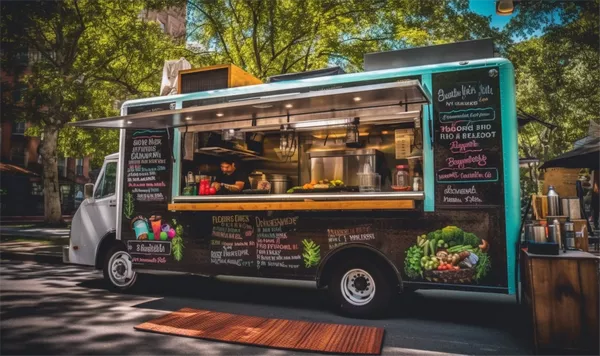While food trucks might not dominate headlines as they once did, they remain a dynamic force in the culinary landscape. The success of various dedicated festivals is a testament to their enduring appeal. Across major cities and rural areas alike, food trucks are experiencing a resurgence fueled by innovation. Their robust health is confirmed by a study conducted by SumUp, albeit with several challenges on the horizon. Persistent inflation continues to impact costs of raw materials, energy, and fuel, while the implementation of Low Emission Zones (ZFE) poses further hurdles to sector growth.
SumUp’s study reveals a 30% increase in business volume and a 32% rise in activity, with an average transaction amount of €22.59 across 14 regions in 2024. However, regional dynamics vary significantly. Brittany records a modest 4% increase, while Normandy and Pays de la Loire see growth rates of 14% and 15%, respectively. In contrast, four regions are driving notable activity: Bourgogne-Franche-Comté (53%), Hauts-de-France (46%), Centre-Val de Loire (39%), Grand Est, Île-de-France (36%), followed closely by Auvergne and Rhône-Alpes (33%) and Provence-Alpes-Côte d’Azur (33%). This sustained momentum across nearly all of mainland France is attributed to multiple factors, including the post-pandemic recovery from 2022 onward, leading to economic resurgence throughout 2024.
Disparities among cities are also apparent. Notably, Nice leads with a 61% increase in business volume, followed by Lille (58%), Lyon (51%), and Toulouse (42%) in the top ranks for growth in turnover from the first quarter of 2024 compared to 2022. Paris shows a more moderate growth rate of 19%. Among French cities, three stand out for remarkable activity growth during the same period: Nice (77%), Lyon (57%), and Lille (45%), followed by Paris (37%) and Toulouse (32%). Nice’s exceptional performance can be attributed in part to its favorable geographical position—nestled between a popular tourist destination and nearby ski resorts—which provides an ideal backdrop for tourism-related activities, particularly dining and hospitality.


























